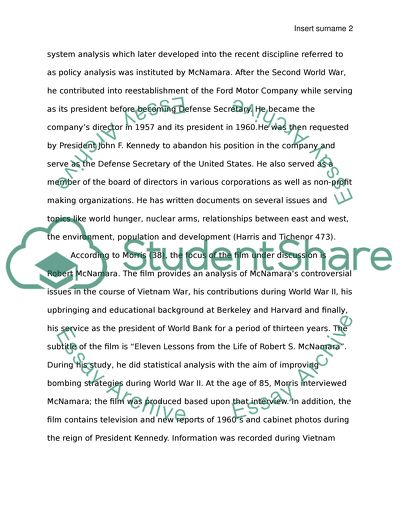Cite this document
(“The Fog of War Documentary Research Paper Example | Topics and Well Written Essays - 2250 words”, n.d.)
Retrieved from https://studentshare.org/history/1446307-the-fog-of-war-documentary
Retrieved from https://studentshare.org/history/1446307-the-fog-of-war-documentary
(The Fog of War Documentary Research Paper Example | Topics and Well Written Essays - 2250 Words)
https://studentshare.org/history/1446307-the-fog-of-war-documentary.
https://studentshare.org/history/1446307-the-fog-of-war-documentary.
“The Fog of War Documentary Research Paper Example | Topics and Well Written Essays - 2250 Words”, n.d. https://studentshare.org/history/1446307-the-fog-of-war-documentary.


